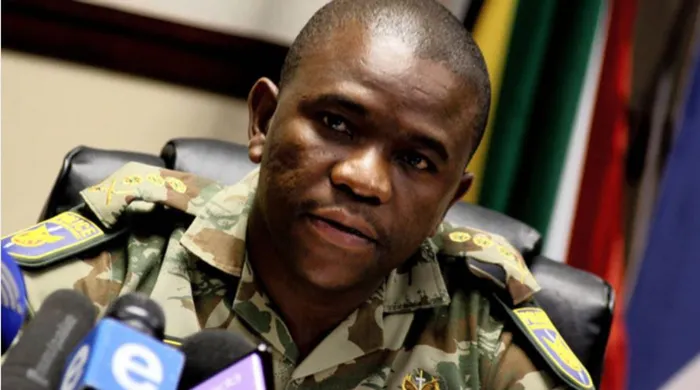Analysts warn of a policing crisis as Nhlanhla Mkhwanazi claims of corruption rock SAPS

Lieutenant-General Nhlanhla Mkhwanzi
Image: Independent Media
Analysts warn that South Africa stands at a perilous crossroads as shocking revelations of police sabotage and corruption threaten to unravel the very fabric of the policing system.
The recent damning allegations from KwaZulu-Natal’s Police Commissioner General Nhlanhla Mkhwanazi have ignited fears that the country may be repeating a dark chapter of its history - one marred by collusion.
In a press conference on Sunday, Mkhwanazi accused high-ranking officials, including the Police Minister Senzo Mchunu, criminal drug lords, and the Deputy Police National Commissioner Shadrack Sibiya, of orchestrating and protecting a well-resourced syndicate to undermine law and order.
These allegations have sent shockwaves through political and civil society circles, exposing a possible web of systemic corruption that could compromise national security for years.
Analysts warn that this crisis is reminiscent of South Africa's turbulent history with police corruption.
Independent political analyst Sandile Swana reminded IOL, “President Cyril Ramaphosa is not the first leader to face such a crisis.”
“We’ve seen this before - think of Jacky Selebi, who was head of police crime intelligence and also Interpol’s head, convicted for colluding with mafia networks. The pattern repeats, revealing a deeply rooted problem of political interference and organised crime collusion.”
Swana stated the importance of the revival of robust investigations in the country.
“The Special Investigating Unit (SIU) must be empowered to probe all allegations involving the Minister, the National Commissioner, and the head of crime intelligence.
“We cannot allow these leaks and accusations to go unanswered. Past failures, like the interference during Jacob Zuma’s tenure, show how political meddling hampers justice and security efforts.”
South Africa’s history is riddled with instances of political interests compromising the justice system.
Swana pointed to interference with prosecution services, citing the removal and protection of key figures like the former directors of Public Prosecutions and the disbandment of Scorpions, an elite unit tasked with fighting serious organised crime.
“The ANC has yet to fully disentangle itself from political influence over security agencies,” he said. “This ongoing interference erodes public trust and hampers effective policing.”
The recent allegations also highlight the peril of politicised appointments within security agencies.
Professor Witness Maluleke, criminology expert at the University of Limpopo, warned that the President must act decisively.
“Ignoring these allegations or shielding top officials will only deepen public disillusionment. We are witnessing a breakdown in oversight, which makes South Africa vulnerable to organized crime, human trafficking, and illicit financial flows.”
On Sunday, Deputy Police National Commissioner Sibiya, in response to Mkhwanazi, flatly denied Mkhwanazi’s allegations.
"He must stop behaving like a criminal and behave like a disciplined member of the police. Tell him to stop threatening people and talking about violence there. He must stop behaving like a warlord. He's a member of the police." Sibiya told the public broadcaster SABC.
As the crisis unfolds, civil society and political observers demand immediate action. Swana called for Parliament and relevant oversight bodies to step up.
“It’s time for comprehensive reforms, strengthening the independence of prosecutorial bodies, empowering the SIU, and revisiting political appointments to prevent future interference. We need long-term solutions, not just quick fixes.”
Professor Maluleke added that Ramaphosa’s response will be crucial.
“If he fails to demonstrate political will and accountability, public faith in his leadership and the ruling party will erode. South Africa’s security apparatus must be cleansed of corrupt influences, or the nation risks descending into chaos.”
thabo.makwakwa@inl.co.za
IOL Politics
Related Topics: